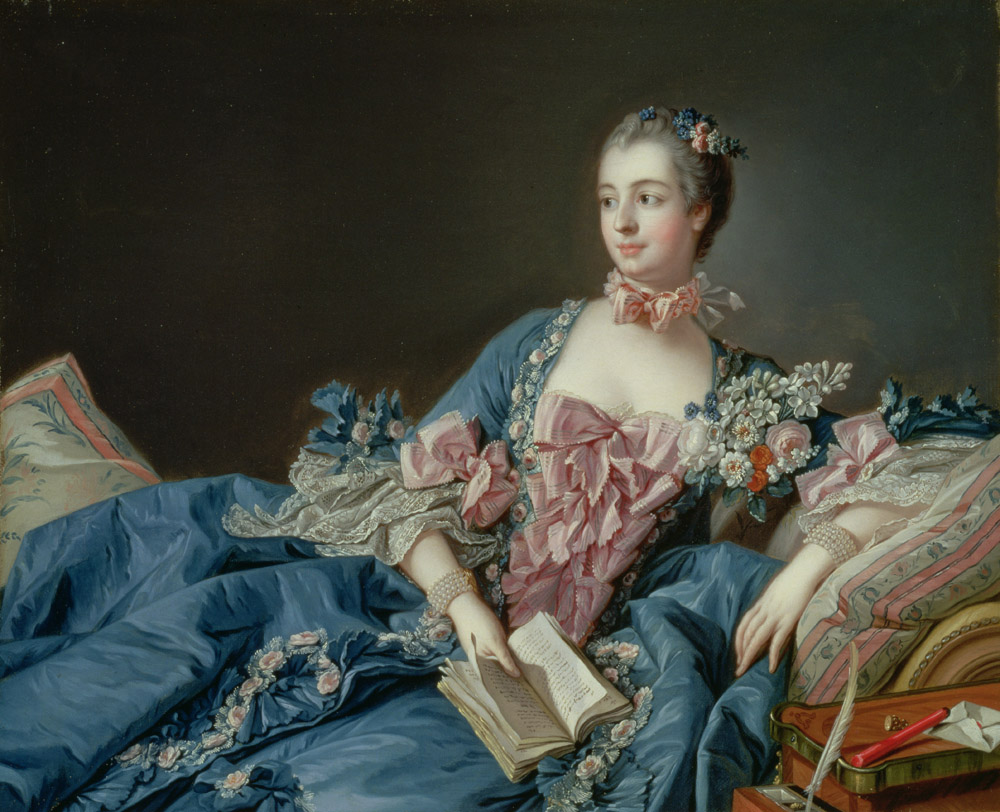From the cradle to the coffin, underwear comes first.
—Bertolt Brecht, 1928Full Court Dress
Judging a courtier by his coverings.
“There are some simpletons,” said Federico, “who, even in the company of the best friend they have in the world, on meeting a man who is better dressed, at once attach themselves to him, and then if they happen on one still better dressed, they do the like to him. And later, when the prince is passing through the squares or churches or other public places, they elbow their way past everyone until they reach his side; and even if they have nothing to say to him, they still must talk and go on babbling and laugh and clap their hands and head to show they have business of importance, so that the crowd may see them in favor. But since these fellows deign to speak only with their lords, I would not have us deign to speak of them.”
Then the Magnifico Giuliano de’ Medici said, “As you have mentioned those who are so fond of the company of well-dressed men, I should like you to show us, Federico, in what manner the courtier ought to dress, and what costume is suitable to him, and in what way he ought to govern himself in all matters of bodily adornment. For in this we find an infinite variety: some who dress after the French fashion, some after the Spanish, some who wish to appear German; nor is their lack of those who even dress after the style of Turks; some who wear their beards, some not. Hence in this medley it were well to know how to choose the best.”
Federico replied, “Indeed I should not know how to give a precise rule about dress, except that a man ought to follow the custom of the majority; and since, as you say, this custom is so various, and the Italians are so fond of arraying themselves after foreign fashions, I think every man may dress as he pleases.

Madame de Pompadour, attributed to François Boucher, c. 1757. National Galleries of Scotland, bequest of Lady Murray of Henderland, 1861.
“But I do not know by what fate it happens that Italy has not, as it was wont to have, a costume that should be recognized as Italian; for although the putting of these new fashions into use may have made the former ones seem very rude, yet the old ones were perhaps a badge of freedom, as the new ones have proved an augury of servitude, which I think is now clearly fulfilled. And as it is recorded that when Darius had the Persian sword which he wore at his side fashioned after the Macedonian style, the year before he fought with Alexander, this was interpreted by soothsayers to signify that they into whose fashion Darius had transformed his Persian sword, should come to rule over Persia. So our having changed our Italian garb for that of strangers seems to signify that all those for whose garb we have exchanged our own must come to conquer us; which has been but too true, for there is now left no nation that has not made us its prey; so that little more is left to prey upon, and yet they do not cease preying upon us.
“But I do not wish to touch on painful subjects. Therefore it will be well to speak of our courtier’s clothes; which I think, provided they be not out of the common or inappropriate to his profession, may do very well in other respects if only they satisfy him who wears them. True it is that I for my part should not like them to be extreme in any way, as the French are sometimes wont to be in overamplitude, and the Germans in overscantiness—but as they both are, only corrected and improved in form by the Italians. Moreover I always like them to tend a little toward the grave and sober rather than the gay. Thus I think black is more suitable for garments than any other color is; and if it is not black, let it at least be somewhat dark. And this I say of ordinary attire, for there is no doubt that bright and cheerful colors are more suitable over armor, and for gala use also dress may be fringed, showy, and magnificent; likewise on public occasions, such as festivals, shows, masquerades, and the like. For such garments carry with them a certain liveliness and gaiety that accord very well with arms and sports. But for the rest I would have our courtier’s dress display that sobriety which the Spanish nation greatly affect, for things external often bear witness to the things within.”
Then Cesare Gonzaga said, “This would give me little concern, for if a gentleman is of worth in other things, his attire will never enhance or lessen his reputation.”
“You speak truly,” replied Federico. “Yet what one of us is there who, on seeing a gentleman pass by with a garment on his back quartered in diverse colors, or with a mass of strings and knotted ribbons and cross lacings, does not take him for a fool or a buffoon?”
“Neither for a fool,” said Pietro Bembo, “nor for a buffoon would he be taken by anyone who had lived any time in Lombardy, for all men go about like that.”

Tibetan lamas wearing ceremonial aprons made of human bones, late nineteenth century. © Pictures from History / Bridgeman Images.
“Then,” said the duchess, laughing, “if all men go about like that, we must not cast it at them as a fault, since this attire is as fitting and proper to them as it is for the Venetians to wear puffed sleeves, or for the Florentines to wear the hood.”
“I am not speaking,” said Federico, “more of Lombardy than of other places, for both the foolish and the wise are to be found in every nation. But to say what I think is important in attire, I wish that our courtier may be neat and dainty throughout his dress, and have a certain air of modest elegance, yet not of a womanish or vain style. Nor would I have him more careful of one thing than of another, like many we see who take such pains with their hair that they forget the rest; others devote themselves to their teeth, others to their beard, others to their boots, others to their bonnets, others to their coifs. The result is that these few details of elegance seem borrowed by them, while all the rest, being very tasteless, is recognized as their own. And this kind of dress I would have our courtier shun, by my advice; adding also that he ought to consider how he wishes to seem and of what sort he wishes to be esteemed, and to dress accordingly and contrive that his attire shall aid him to be so regarded even by those who neither hear him speak nor witness any act of his.”

Baldassare Castiglione
From The Courtier. A Mantuan diplomat, Castiglione wrote this book of fictional conversations about the manners of the perfect Renaissance courtier between 1513 and 1518. In it he identifies the concept of sprezzatura—ease of manner or the appearance of effortlessness—as an essential component of graceful behavior. After James Joyce read the dialogues his brother told him he had become more polite but less sincere.


